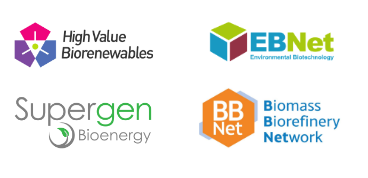Preteatment of cellulosic textiles by reaxtive species produces by gas plasma

- Project lead
- Hemaka Bandulasena
- Institute
- Loughborough University
Summary:
As part of the Textile Circularity Centre, The University of York has developed an effective method for producing high quality cellulose from end-of-life textiles, which can be used to create new cellulosic textile fibres. The process uses environmentally benign digestion of cellulosic fibres with enzymes to convert them into sugars. This process also releases dye molecules from the textiles. We then use bacterial fermentation to create new cellulose polymers from the glucose, which is free of dyes and effectively virgin quality. York has been working with several industrial and academic partners to develop ways to produce textile fibres from this bacterial cellulose created from waste. The quality of the cellulose is good and small-scale fibre spinning has been undertaken successfully.
While the initial work looks very promising and fabric made from regenerated cellulose such as viscose can be used directly in the York technology platform, cotton fibres require a pretreatment, which necessitates the use of high concentration of caustic soda and has a negative impact on the sustainability of the process. The Department of Chemical Engineering at Loughborough university has developed a novel plasma-microbubble reactor that can efficiently pretreat lignocellulosic biomass and microcrystalline cellulose for further biologic processing, without the need for added chemicals. This potentially represents an innovative and sustainable alternative to standard chemical pretreatment for recycling textiles using the York process.
This project is a collaboration between Loughborough university, the University of York and BAM to investigate the use of plasma technology for pretreating commercial cellulosic textile blend from BAM before they can be converted into new cellulose for textile applications.
Aim:
The University of York’s fermentation-based cellulosic textile recycling yields virgin-quality cellulose, but its unsustainable pretreatment with chemicals poses a challenge. Our project aims to assess Loughborough University’s plasma-microbubble reactor for chemical-free textile pretreatment, enhancing sustainability while ensuring high-quality regenerated cellulose fibres for textile applications.
Outcomes:
Textiles with varying cotton and bamboo viscose content were pretreated using reactive species generated by gas plasma. NaOH solubility tests and XRD data indicated moderate changes in textile crystallinity. Enzymatic digestion tests did not demonstrate significant improvements post-plasmamicrobubble pretreatment. However, fermentation of pretreated samples yielded intriguing and promising results. Notably, a textile with orange dye, initially unfermentable even after caustic soda pretreatment, became fermentable following plasma-microbubble treatment in this project.
Impact:
Our prior research demonstrated that textiles containing certain dyes produced non-fermentable digestates. The improved fermentability observed in these textiles following plasma-microbubble pretreatment is encouraging. Nevertheless, it is essential to conduct tests on a range of textiles before advancing to further exploitation.
Academic partner: Hemaka Bandulasena, Loughborough University
Industrial partner: Merryn Chilcott, BAM Clothing








